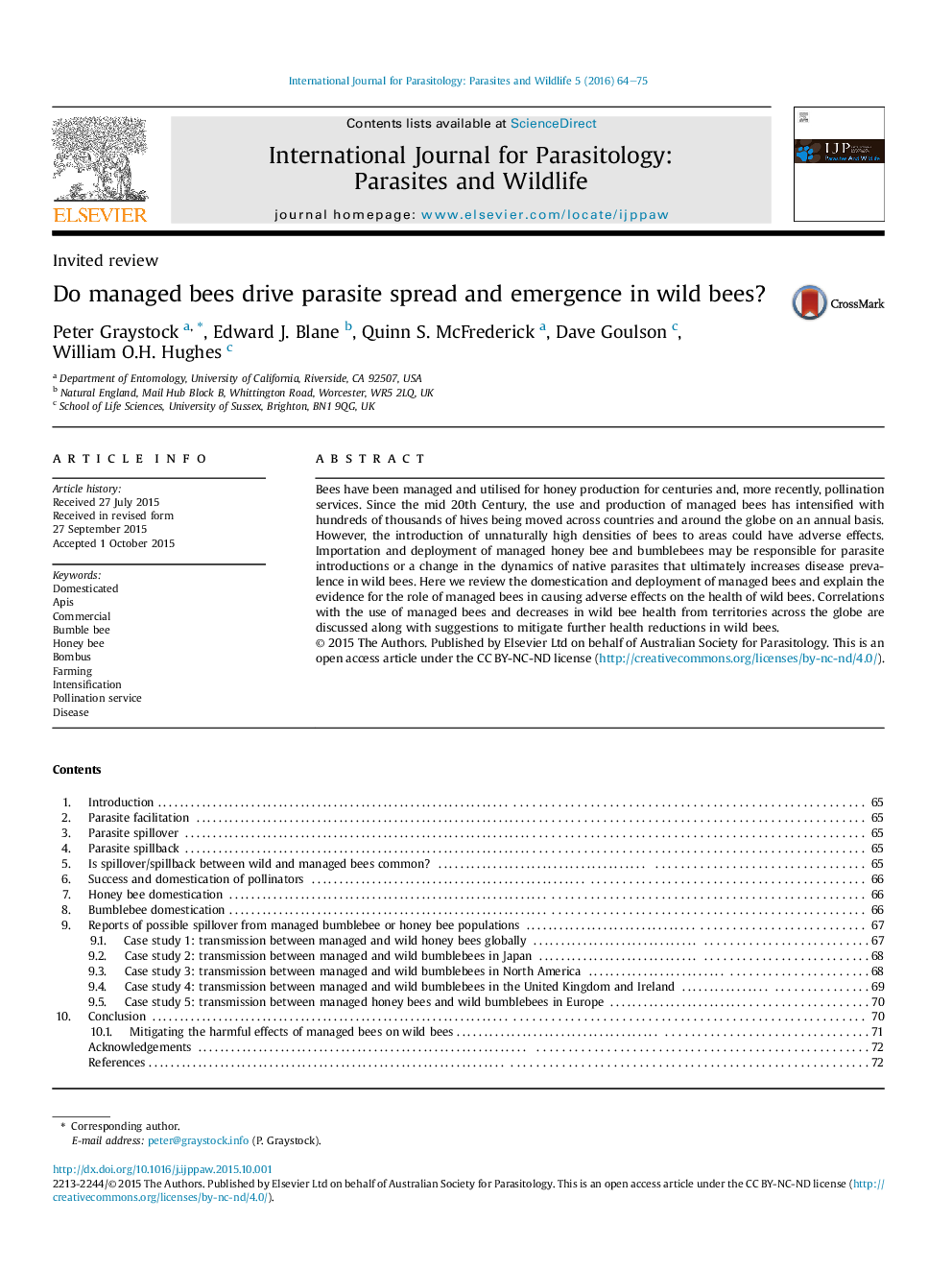| کد مقاله | کد نشریه | سال انتشار | مقاله انگلیسی | نسخه تمام متن |
|---|---|---|---|---|
| 2055349 | 1075741 | 2016 | 12 صفحه PDF | دانلود رایگان |
• Commercialisation of bees has increased the risk of disease spread.
• Multiple incidents of parasites in managed bees from various countries across the world.
• Evidence of parasite spread to wild bees around the world.
• Serious implications for both wildlife and industry.
• We suggest how this can be mitigated in the future.
Bees have been managed and utilised for honey production for centuries and, more recently, pollination services. Since the mid 20th Century, the use and production of managed bees has intensified with hundreds of thousands of hives being moved across countries and around the globe on an annual basis. However, the introduction of unnaturally high densities of bees to areas could have adverse effects. Importation and deployment of managed honey bee and bumblebees may be responsible for parasite introductions or a change in the dynamics of native parasites that ultimately increases disease prevalence in wild bees. Here we review the domestication and deployment of managed bees and explain the evidence for the role of managed bees in causing adverse effects on the health of wild bees. Correlations with the use of managed bees and decreases in wild bee health from territories across the globe are discussed along with suggestions to mitigate further health reductions in wild bees.
Figure optionsDownload as PowerPoint slide
Journal: International Journal for Parasitology: Parasites and Wildlife - Volume 5, Issue 1, April 2016, Pages 64–75
